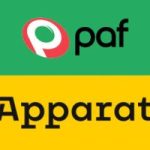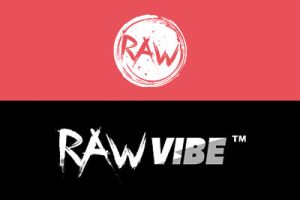
Since change is the only constant in the game world, things seem to stay the same within certain parameters according to specific goals and ambitions. When a regulator decides to protect its citizens from harm from external forces, especially if that regulator is a member of the European Union – but also in general – what is actually happening is very often an attempt to exploit capital flight and the treasury with it to fill money flows abroad.
Most of the time, it doesn’t take a “sour” or even cynical perspective to see through the fog. It’s not exactly clear what Really happens here.
On the way to privatization High fines threaten violations
Last week, the Dutch finance minister considered an idea we’ve been pursuing for a decade – privatizing the state-controlled monopoly on some forms of gambling. The Dutch Lottery Nederlandse Loterij (NLO) is a state-owned company, like Casino Holland, with more than a dozen state-owned casinos across the country. See Lexology’s 2015 report titled Reform of the Dutch casino market and privatization of Holland Casino: The Dutch Ministry of Security and Justice announces a public consultation (Here).
This week we found out that the Dutch gaming regulator KSA (de Kansspelautoriteit) remains serious about its duty to protect Dutch people – the only reason why many EU member states with gaming monopolies can breach free trade agreements and the right to open markets ) with the announcement that that two licensed lottery operators They are said to be breaking the law and facing fines of up to one million euros if they offer citizens “gambling” instead of approved games.
Postcode Loterij And VriendenLoterij have been informed of regular penalties if they continue to offer unauthorized games, notably Deal or no Deal and FriendsLottery Millionaires.
Although lottery games such as drawing numbers are offered notoriously bad odds and “theoretical” player return percentages – the regulator has determined that casino gambling is “riskier” and violates lottery providers’ agreements with the state. A bit later in the KSA statement, however, we note that the two types of games are “just” intended to remain separate and distinct. Online lottery games are not allowed in the Netherlands, which further complicates the consideration of possible adverse measures.
“Laws and regulations make a clear distinction between lotteries and riskier forms of gambling, including online gambling.” said the KSA in the statement on the matter. “The two games of chance require a different license.”
“Online lotteries must not be offered; Participation tickets may only be sold online. The online offering of games linked to a lottery is prohibited. The law doesn’t allow this. The KSA remains interested in ensuring that the lottery and online gambling remain separate.”
According to the Dutch Lottery official website: “The probability of winning a prize greater than one’s investment varies by draw and is 13.7% in 2023. This is an average of the 16 draws.”
Lottery provider in Holland
The Dutch Lottery is a limited liability company. It was created in 2016 through the merger of the State Lottery and Lotto. The official website currently lists 9 trusted brands including State Lottery, Lotto, Eurojackpot, Millionaire’s Play, Lucky Day, Scratch Cards, TOTO Shop, TOTO Casino and TOTO Sport.
Post code Loterij and VriendenLoterij have the intention to counter the threat of fines of €250,000 per week, up to one maximum €1 million, through the appeals process, but they will go to offer the games no later than June 8, 2023, while the groups present a legal defense.
Post code Loterij and VriendenLoterij issued a joint statement with the statement: “The KSA believes that these free lottery games do not comply with the lottery license. However, the games are a form of entertainment and correspond to the safe character of a non-profit lottery with one goal: to raise money for good causes.”
“Over the past 30 years, participants have been able to take part in other games time and time again in this way, whether by post, on the Internet, on special apps or live.”
“There’s no point in playing one of the games yourself. In games, just like in a traditional lottery, participants only receive a prize after a draw. The games thus meet the lottery license requirements.”
In 2022, fines of almost 30 million euros will be imposed
According to iGaming Business, KSA issued 29 million euros fine in 2022 and imposed fines of €9 million for “illegal gambling conduct,” according to the regulator’s annual report for 2022. Most of the findings are confirmed by CMS right now, A”Forward-looking law firm…with 79 offices in more than 40 countries and more than 5,000 lawyers worldwide”in an April report on gambling growth in the Netherlands.
According to these and other reports (official and summary), even higher fines have been imposed on operators who do not hold a Dutch gaming license. “At the end of December 2022, the KSA imposed fines on Videoslots Limited (9.EUR 874,000), N1 Interactive Limited (12,640.EUR 000), Betpoint Group Limited (EUR 1,787,000) and Probe Investments Limited (EUR 1,128,000).”
“KSA based the amount of the fines on its recently adopted September 2021 Fines Policy, which takes into account a company’s turnover in the Netherlands.”
Although not directly relevant to any known cases in the Netherlands, Swedish courts have recently ruled that fines should be based on ‘turnover’ (total betting volume) rather than gross gaming revenue (GGR) – the money a company generates during a actually receives a certain base period. This is an unfair and unjustifiable accounting practice by the supervisory authorities EGR Global report March 2023.
Spring: Lottery groups in the Netherlands face a fine of one million euros for license violationsiGaming Business, May 30, 2023













